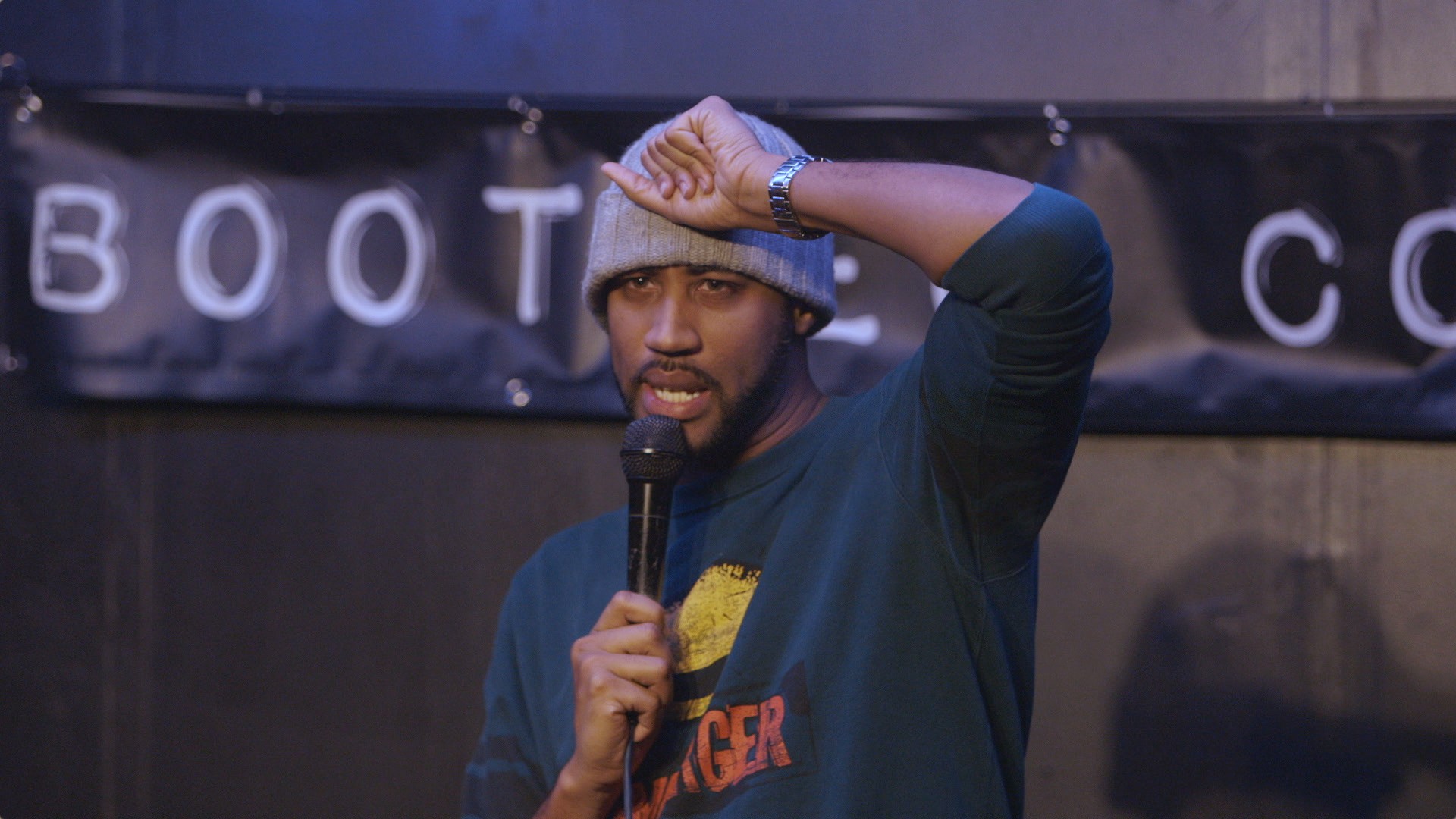GraphicaArtis / Getty Images
I live with generalized anxiety, a constant buzzing drone that interferes with my focus, my confidence, and my general peace of mind. Therapy can help, but the process of choosing a therapist is angst-provoking, like dating without the promise of rom-com-caliber commitment, a painfully vulnerable process of exposing personal details to a stranger, hoping I'm not too screwed up for help.So, what could assuage an anxious person like me—and the 40 million adults in the US who struggle with some form of anxiety—more than an on-demand mental health professional in my pocket? Imagine being able to you text your shrink as you slip away from that happy hour event you really didn't want to attend in the first place, or dial up therapy on the fly to deal with the imposter syndrome in your job. These three apps aim to make treatment for anxiety accessible in a way therapy has never been before.Maven Health and Wellness
Maven was founded on the premise that "Women in America make 80 percent of all health decisions for themselves and their families," and because the healthcare system is not "exactly female-friendly." Their aim is to make access simple. I feared this would mean that the site was pink with swirly floral script. Happily, nothing was stereotypically "feminine" in its design.I created an account with minimal personal information, selected "mental health" as my focus, and instantly thumbed through a list of professional profiles. With only a brief description of my goals, I made a same-day video appointment with a shrink. Due to licensing issues in which therapists can't legally practice across state lines, they call themselves "coaches"—though most are trained in social work and mental health."Julia" was on time to meet me, and instantly warm. Her youthful face made me feel I was talking to a peer, not a stodgy Freudian gazing sternly across spectacles. She didn't try to unravel the mysteries of my challenging childhood, but suggested we focus on the "here and now," asked me how anxiety manifests in my life, and offered me practical solutions.By the end of 40 minutes, I had a list of interventions: a brief meditation in the mornings to replace my tendency to bang my head against the doors of procrastination; to take a walk rather than stew in my thoughts; a list of mantras and reminders of what I'm good at; and books to encourage me to be the flawed, imperfect, anxious person I am without self-judgment. Did it whisk away my anxiety and replace it with adult skills like timely bill payments and balanced meals? No. But I felt calmer after our appointment than I have in months, which is pretty monumental. At $70 per 40-minute session, it's not exactly cheap, but it's more affordable than anything off-insurance and you can try out as many coaches as you want at $20 per ten-minute session during your first week.
More From Tonic:
Talkspace
If, like me, you hate baring your emotions in the presence of another human being, Talkspace could be the perfect solution—unlimited texting with a therapist that you never have to see in person. For $128 month, you can have your very own shrink-by-phone. My therapist let me know she'd check in with me twice a day, Monday through Friday, and that it would be up to me to initiate conversation. She wouldn't contact me unless I'd left her a message. I wondered why all relationships can't be so simple.Here, however, I felt the limitations of the medium. Since I wasn't always with my phone at the same time as she texted me, our conversations were stilted and one-sided, like trying to pour your heart out to the drive-through Starbucks barista. For every simple question she asked me about my anxiety, there were layers of answers to explore. Typing that all out rather than speaking it aloud felt cumbersome. Still, if I had to choose between no therapy and Talkspace's model, it definitely provides benefits, and a sense of calm just knowing that there's a person on the other end of that blinking cursor who cares.Joyable Not all anxiety is created equal. Which means different types require different treatment. Joyable aims to help a subset of anxiety: social anxiety, defined as "nervousness or discomfort in social situations, usually because of an intense fear of being scrutinized or judged by others." Social anxiety isn't the same as being an introvert—I should know; as a socially anxious extrovert, one of the most painful social scenarios for me is attending an event where I don't know anyone.Joyable was the least, well, enjoyable, app to use at first, because it directed me to take anxiety-triggering quizzes. However, it had the most long-lasting benefits because those lessons and games really got into my head. Joyable's program is based on cognitive behavioral therapy (CBT), which helps you identify the automatic thoughts at the root of your anxiety and catch the resulting behaviors. By adding awareness to your thoughts, and shifting them, the theory goes, you can circumvent the negative feelings, and thwart an anxiety spiral.I was surprised to score "severe social anxiety" on the first quiz—quite frankly, it made me a little extra anxious. You're encouraged to engage in five-minute activities throughout the week, and you can have a ten- to 30-minute free phone check-in with a coach every other week. My coach helped me set concrete goals (make a dent in that Imposter Syndrome, function at parties with strangers), and promised to be available by phone or text if I had a question. The fee structure is not totally apparent from the website, but when I asked I learned that participants can get a seven-day free trial, and then it's $23 per week thereafter (billed monthly at $99) which includes two one-on-one phone conversations with the therapist.Read This Next: Stop Confusing Your Nerves With Having Anxiety
Advertisement
Maven was founded on the premise that "Women in America make 80 percent of all health decisions for themselves and their families," and because the healthcare system is not "exactly female-friendly." Their aim is to make access simple. I feared this would mean that the site was pink with swirly floral script. Happily, nothing was stereotypically "feminine" in its design.I created an account with minimal personal information, selected "mental health" as my focus, and instantly thumbed through a list of professional profiles. With only a brief description of my goals, I made a same-day video appointment with a shrink. Due to licensing issues in which therapists can't legally practice across state lines, they call themselves "coaches"—though most are trained in social work and mental health."Julia" was on time to meet me, and instantly warm. Her youthful face made me feel I was talking to a peer, not a stodgy Freudian gazing sternly across spectacles. She didn't try to unravel the mysteries of my challenging childhood, but suggested we focus on the "here and now," asked me how anxiety manifests in my life, and offered me practical solutions.By the end of 40 minutes, I had a list of interventions: a brief meditation in the mornings to replace my tendency to bang my head against the doors of procrastination; to take a walk rather than stew in my thoughts; a list of mantras and reminders of what I'm good at; and books to encourage me to be the flawed, imperfect, anxious person I am without self-judgment. Did it whisk away my anxiety and replace it with adult skills like timely bill payments and balanced meals? No. But I felt calmer after our appointment than I have in months, which is pretty monumental. At $70 per 40-minute session, it's not exactly cheap, but it's more affordable than anything off-insurance and you can try out as many coaches as you want at $20 per ten-minute session during your first week.
Advertisement
More From Tonic:

Talkspace
If, like me, you hate baring your emotions in the presence of another human being, Talkspace could be the perfect solution—unlimited texting with a therapist that you never have to see in person. For $128 month, you can have your very own shrink-by-phone. My therapist let me know she'd check in with me twice a day, Monday through Friday, and that it would be up to me to initiate conversation. She wouldn't contact me unless I'd left her a message. I wondered why all relationships can't be so simple.Here, however, I felt the limitations of the medium. Since I wasn't always with my phone at the same time as she texted me, our conversations were stilted and one-sided, like trying to pour your heart out to the drive-through Starbucks barista. For every simple question she asked me about my anxiety, there were layers of answers to explore. Typing that all out rather than speaking it aloud felt cumbersome. Still, if I had to choose between no therapy and Talkspace's model, it definitely provides benefits, and a sense of calm just knowing that there's a person on the other end of that blinking cursor who cares.Joyable Not all anxiety is created equal. Which means different types require different treatment. Joyable aims to help a subset of anxiety: social anxiety, defined as "nervousness or discomfort in social situations, usually because of an intense fear of being scrutinized or judged by others." Social anxiety isn't the same as being an introvert—I should know; as a socially anxious extrovert, one of the most painful social scenarios for me is attending an event where I don't know anyone.Joyable was the least, well, enjoyable, app to use at first, because it directed me to take anxiety-triggering quizzes. However, it had the most long-lasting benefits because those lessons and games really got into my head. Joyable's program is based on cognitive behavioral therapy (CBT), which helps you identify the automatic thoughts at the root of your anxiety and catch the resulting behaviors. By adding awareness to your thoughts, and shifting them, the theory goes, you can circumvent the negative feelings, and thwart an anxiety spiral.I was surprised to score "severe social anxiety" on the first quiz—quite frankly, it made me a little extra anxious. You're encouraged to engage in five-minute activities throughout the week, and you can have a ten- to 30-minute free phone check-in with a coach every other week. My coach helped me set concrete goals (make a dent in that Imposter Syndrome, function at parties with strangers), and promised to be available by phone or text if I had a question. The fee structure is not totally apparent from the website, but when I asked I learned that participants can get a seven-day free trial, and then it's $23 per week thereafter (billed monthly at $99) which includes two one-on-one phone conversations with the therapist.Read This Next: Stop Confusing Your Nerves With Having Anxiety
